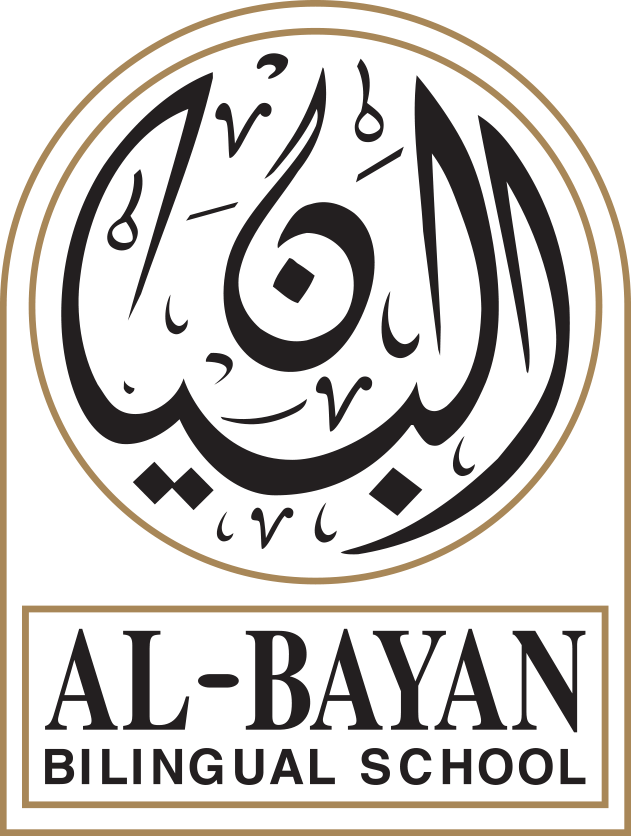About
Health Clinic Policies & Procedures
Our school health policy is developed to fulfill the following objectives :
- Promote the health and wellbeing of our students & staff
- Prevent illness & disease from spreading
- Provide care and treatment when needed
Below are our health policies & procedures regarding :
- Health Services
- Student Medical Files
- Special Health Cases
- When to Keep Your Child at Home
- Medication
- Nutrition (PreNursery and Elementary School)
- Regular Checkups
- Medical Emergency Procedures
Health Services
- Al-Bayan Bilingual School's health program offers educational, preventive, and first aid services only. We request that parents follow up with their own family doctors on the medical care and services that are offered out of school.
- For routine health problems there is a school nurse available in each division; except in ES where there are two nurses. If your child becomes ill or has an accident at school, your child will be sent to the nurse. If the nurse feels that the students is too ill to continue in school, she will call the parent or guardian to inform them that the child should be picked up.
Student Medical Files
- It is important that the school has the proper home and work numbers. Also, an emergency number is needed in case the nurse is not able to reach you at home or at work.
- The school medical file must be completed and submitted to the Registration Office before your child attends school (as required by the School Health Department of Kuwait’s Ministry of Health). This file includes a physical fitness registration card (filled and signed by the Ministry’s doctors), a copy of your child’s immunization certificate, and a blood group slip. The above requirements are very important for the follow-up on each student’s case. (See Form 1: Student’s Medical Record)
- Parents or guardians are also required to fill out a “Student’s Health Information Record Update” annually so that we can provide our students with the appropriate medical and health care services. (See Health Form 2: Student’s Health Information Record - Update).
Special Health Cases
- Students suffering from a special health problem such as allergies, asthma, diabetes, or heart problems, etc. should inform the school in writingand submit a detailed medical report. Kindly supply the school with the prescribed medications to give to the students in case of emergency, and include a medical prescription explaining the treatment plan.
- All classroom teachers are informed by the school nurse of any special health cases present in the class including care instructions & treatment if any. The nurses share the lists of students with special health conditions with teachers /counselors and admin. Medical alert templates for students with serious medical conditions, are also shared with designated school staff.
- In case of any previous illness or accident, please inform the school and provide a report about the present situation of your child for follow-up at school.
When to Keep Your Child at Home
- In case of any illness – mainly communicable diseases such as chicken pox, measles, mumps, rubella, and scarlet fever… please do not send your child to school unless he/she is completely cured. A doctor’s report should be sent to the school nurse on the first day your child attends school after recovery, stating that the disease is not contagious anymore.
- In case of illness that causes absence from school for more than 3 days, -(PS/ES only)- a sick leave notice filled and signed by the doctor is required. (See Health Form 5). For HS/ MS refer to “Parents Handbook”.
- If your child has had high fever (38 degrees or above) or flu, he/she should only be sent to school after 24 hours have passed and fever is considerably lower. This will avoid transmission of infection to other students or to staff.
- If your child is suffering from stomachache, vomiting, sore throat and/or diarrhea, please keep him/her home the next day to avoid the consequences of coming to school while sick. Not enough rest negatively affects the immune system and hence its defense against diseases. Furthermore, a sick and sleepy student cannot learn.
- If your child has sore eyes or redness with tears, please consult a doctor to rule out a contagious eye infection before sending the child to school.
Medication
- School nurses are the only eligible persons to give medication at school, following the list of medications that are approved by Kuwait's Ministry of Health School Health Department and the consent form filled by parents at the beginning of school year.
- If a student visits the school nurse for any reason, you will be notified through skoolee, unless the situation is urgent, you will be contacted directly by the school nurse
- If your child has to take medications at school, it has to be brought by parent/guardian & kept at school clinic & picked up by them at the end of the day. Medications shouldn't be given for children to handle under any circumstances.
- Should a child be given medicine that is brought from home during school hours a doctor's prescription stating the dose & timing has to be attached.
- Students with a chronic illness such as diabetes or asthma need to keep their medications at the school clinic to be administered by the nurse when needed.
- Asthma / diabetes management forms have to be filled & signed by the treating doctor.
Nutrition (PreNursery to Elementary School)
- BBS is a nut free school.
- Healthy food is vital for your children. We emphasize proper nutrition at a young age and encourage parents to pack a lunch free of "junk food".
- Make sure that your child eats breakfast before coming to school.
- Food that is not allowed in Preschool / Elementary: chips, crisps, cakes, cookies, soda pop (fizzy drinks), candy, chocolate and gum
- Food that is not allowed in Elementary School: Soda pop (fizzy drinks), gum, chocolate, candy, and nuts of any kind.
Regular Checkups
- Yearly visual and growth screening: School nurses check the height, weight and vision (PS/ES) for all students and inform parents or legal guardians with a letter in case of abnormalities.
- Physicians from the Ministry of Health do checkups on all students from KG2, grades 2, 6, and 10, in addition to students with special medical cases from all classes (K-12).
Medical Emergency Procedures
- In case of a medical emergency within the school clinic, or anywhere on campus, the student or staff suffering will not be moved from his/her location.
- A nurse will be informed to report immediately to the location to provide any first aid that may be needed.
- If necessary, the nurse contacts 112 and paramedics and the ambulance are called in.
- One nurse will accompany the sufferer to the hospital.
- The parents or spouse of the sufferer are informed immediately of the situation.



